Cervelo tears up the rule book for the new S Series
En route to the ultimate race machine

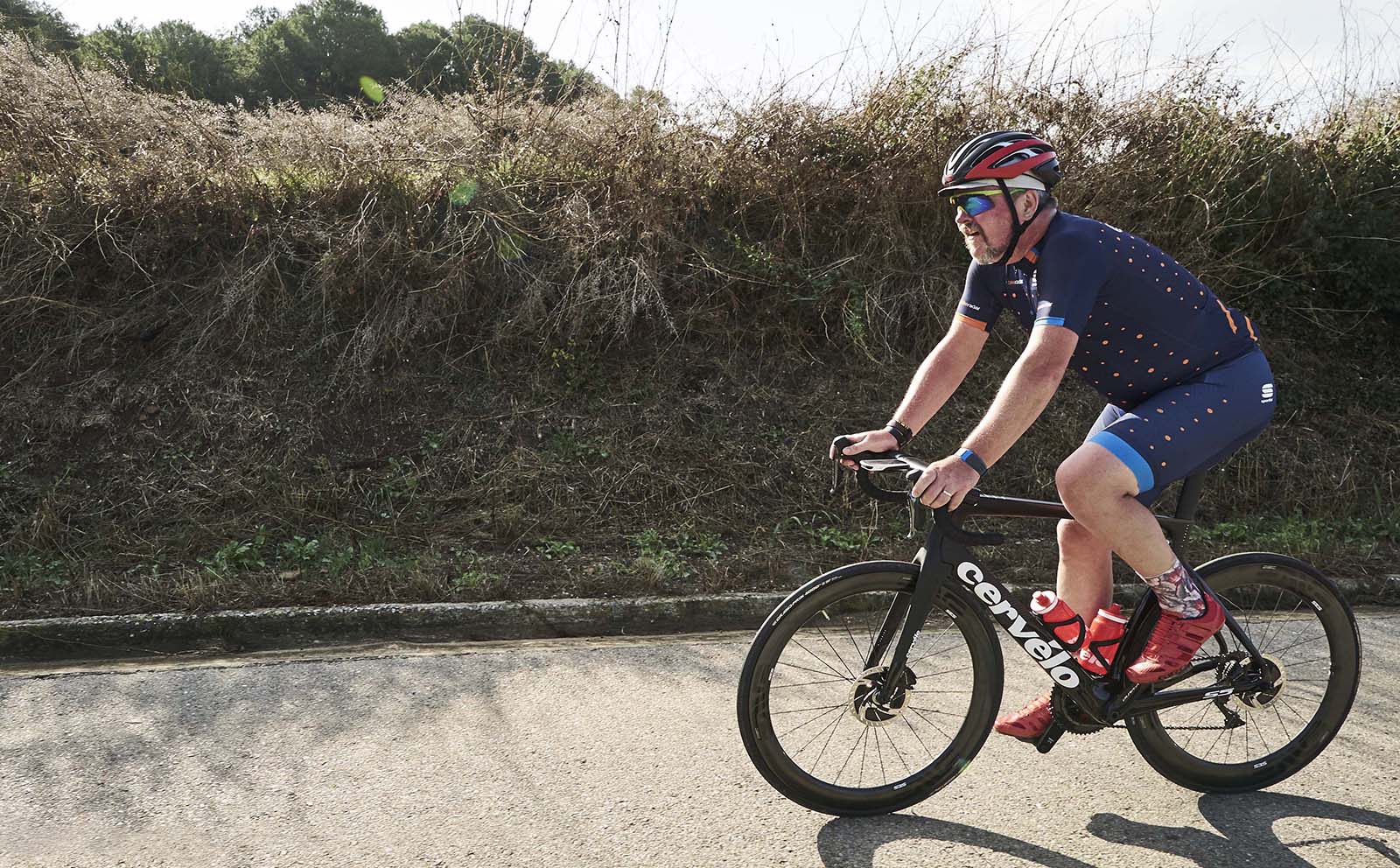
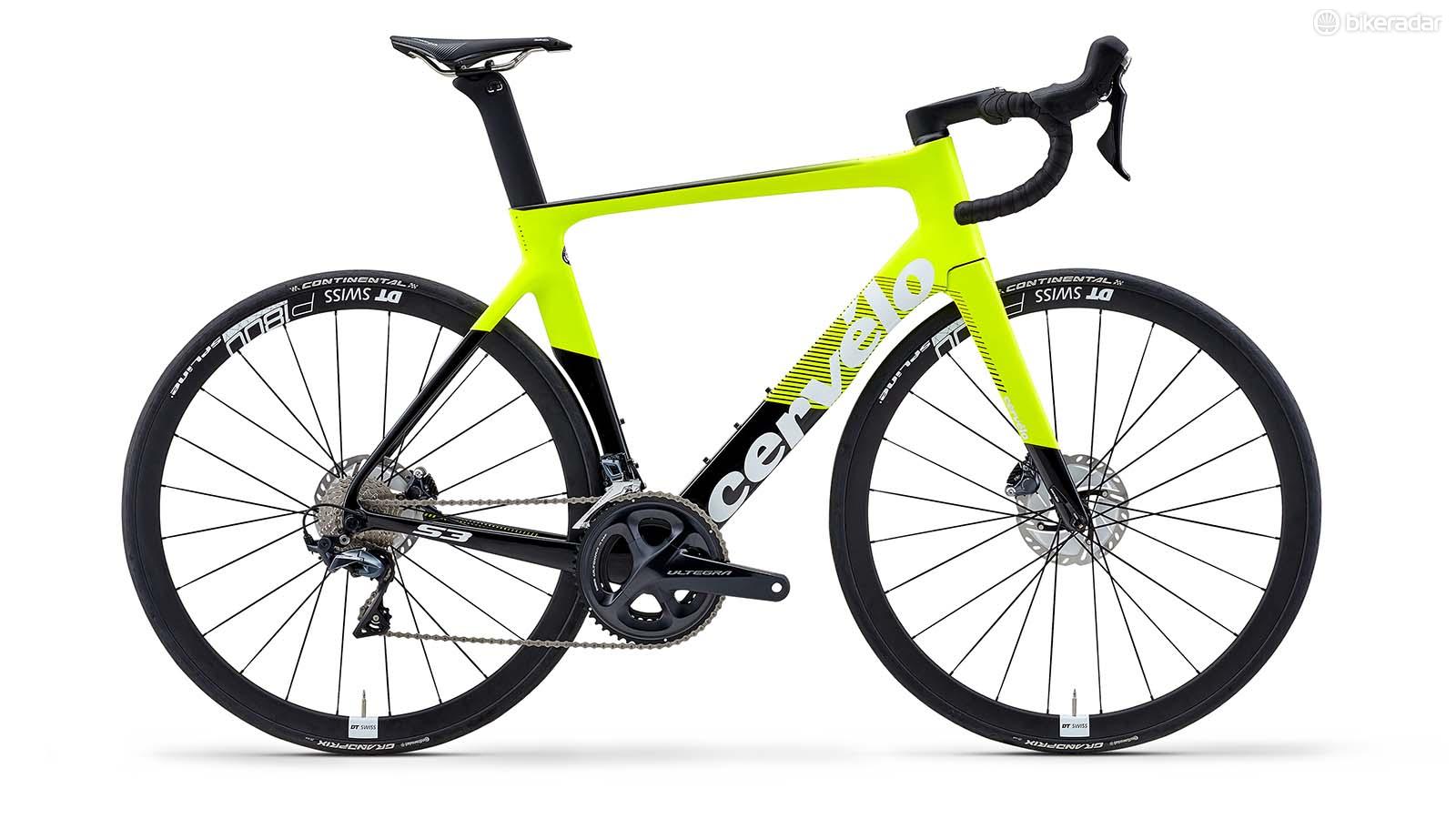
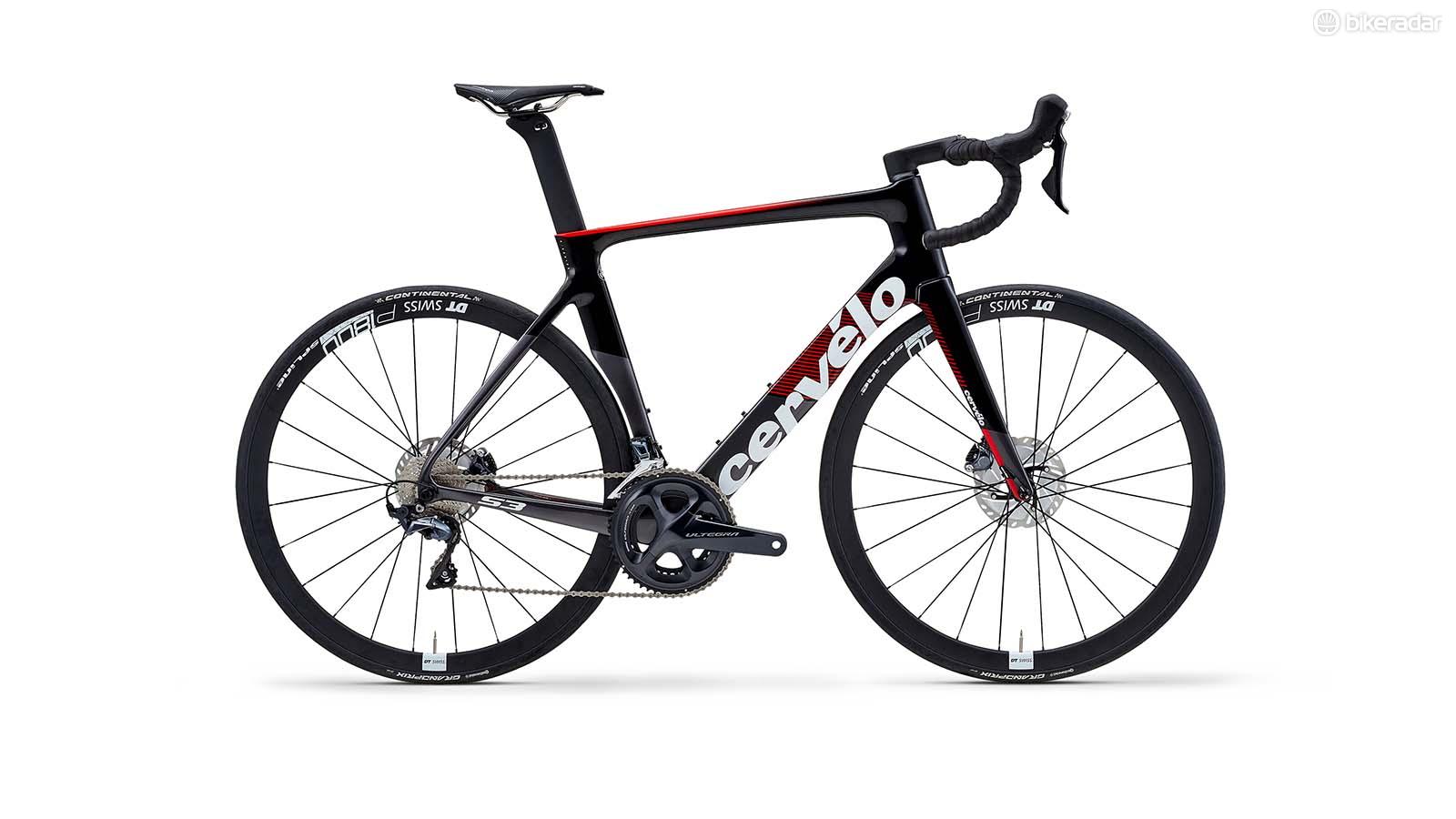
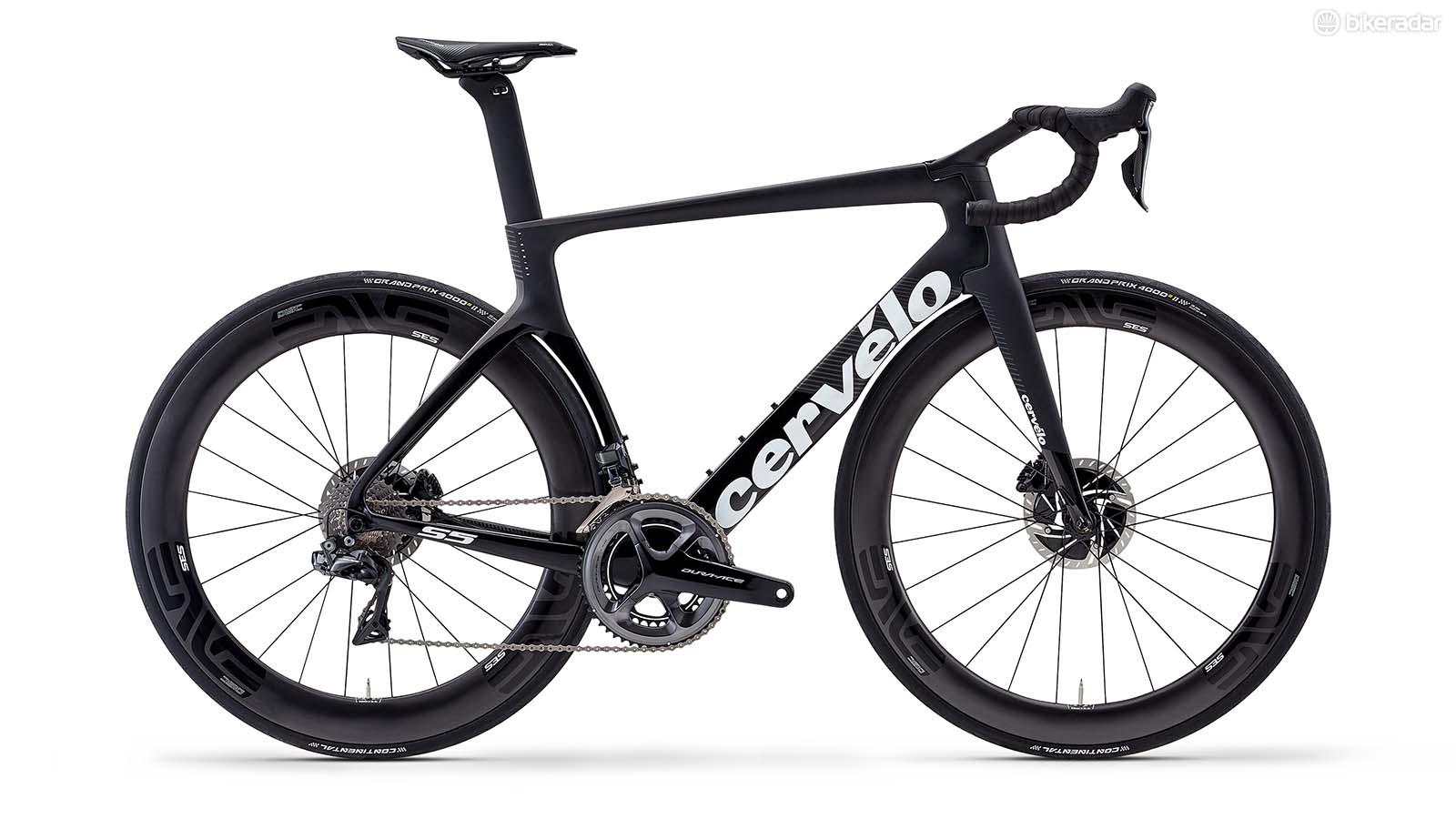
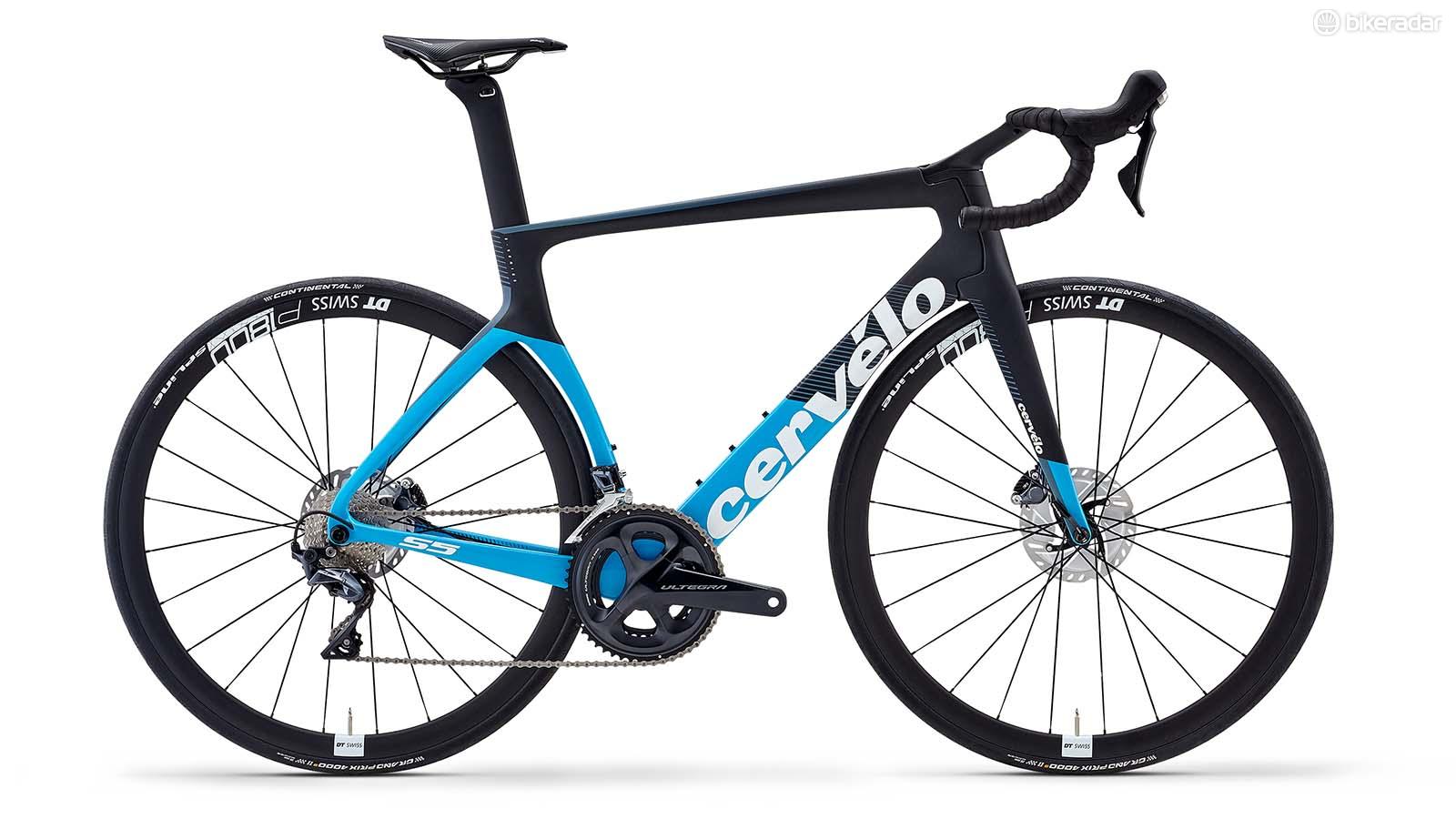

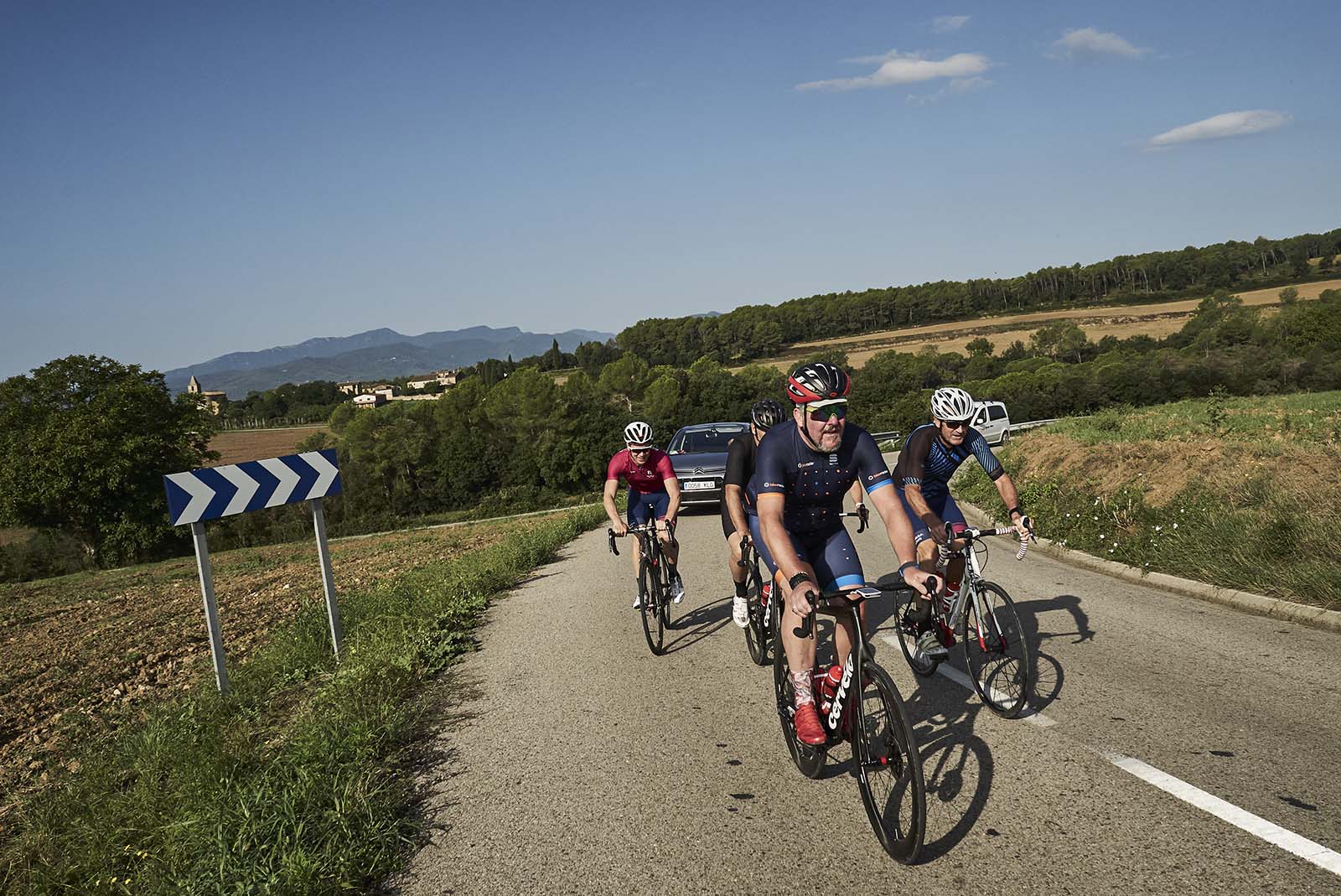
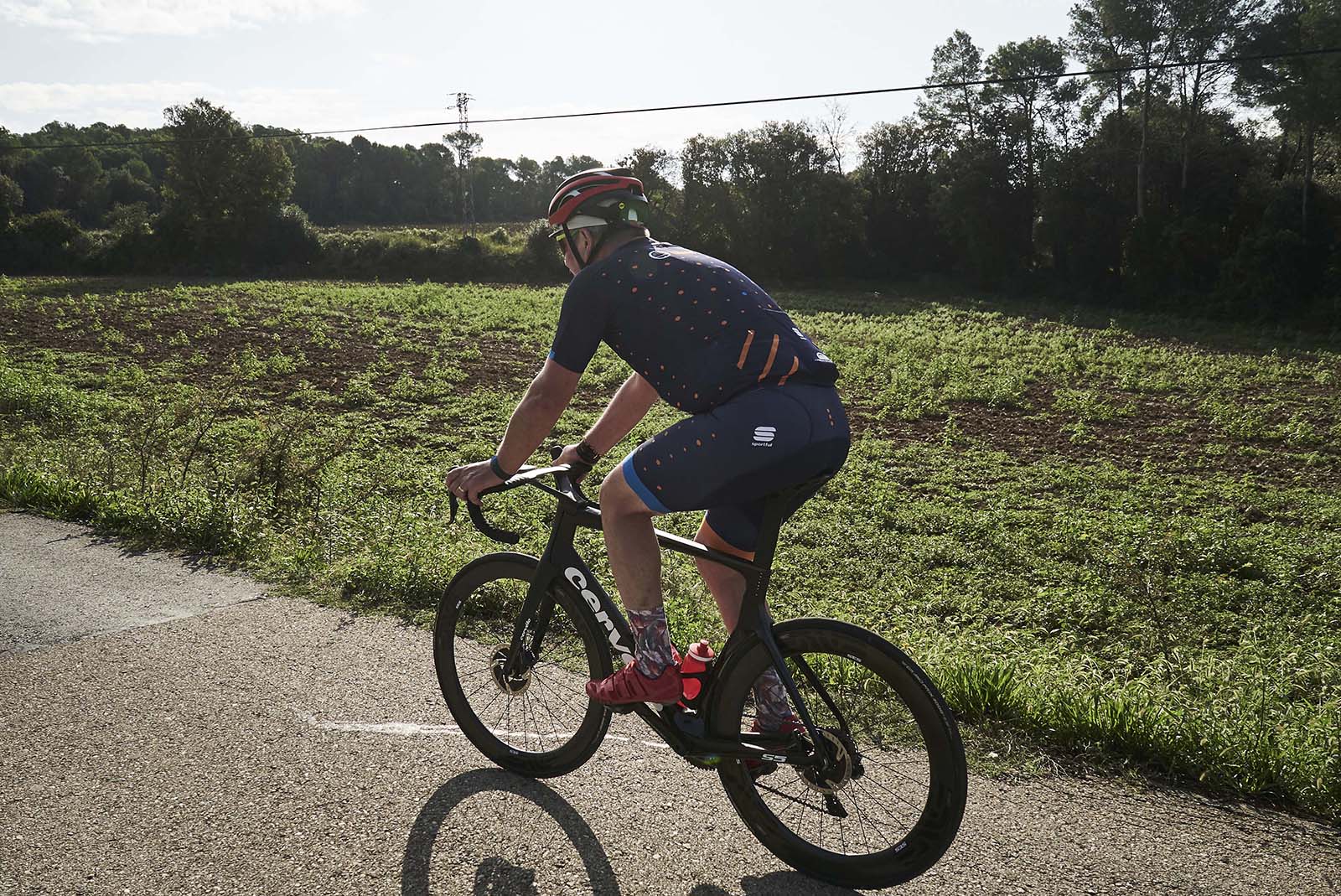
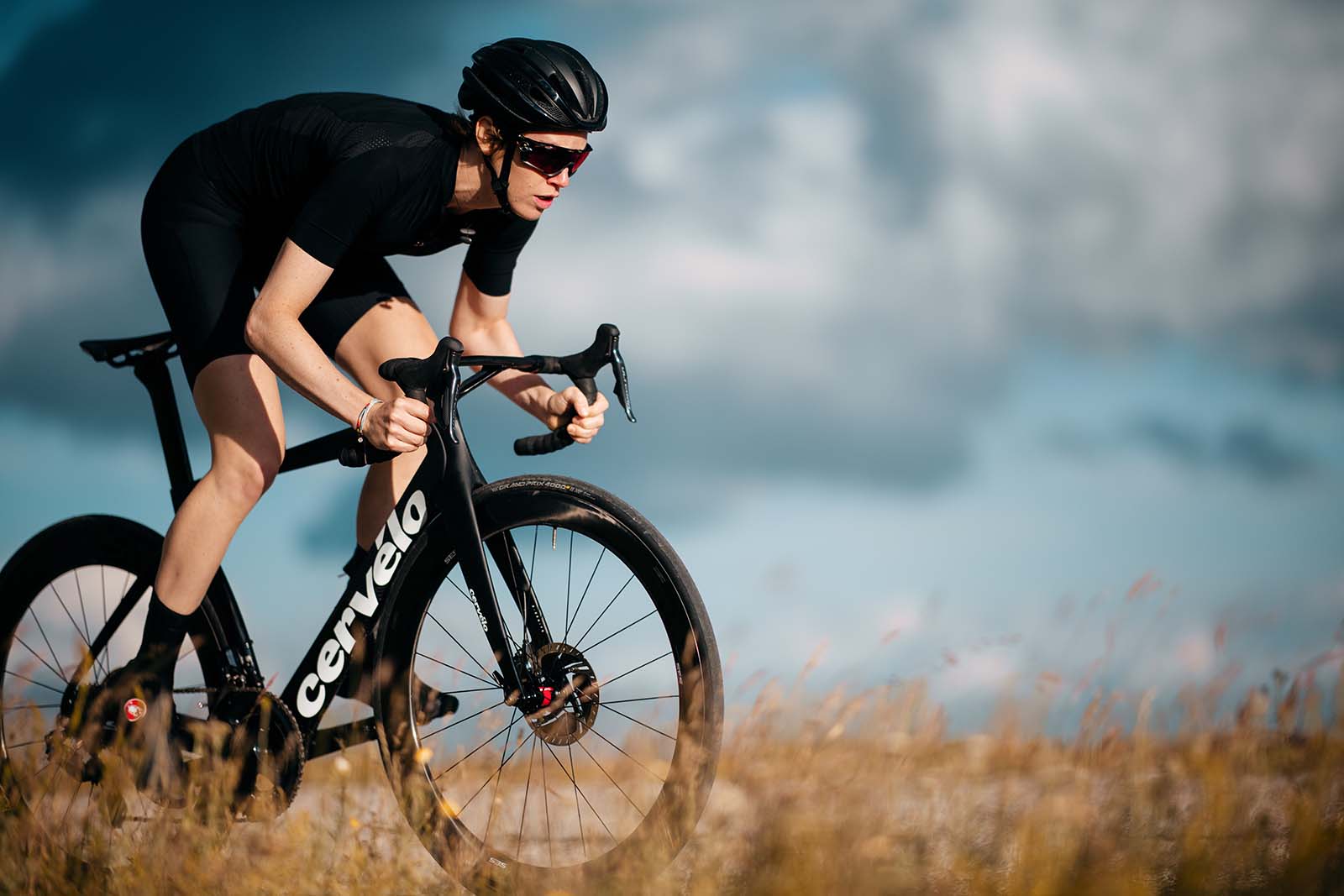
This article first appeared on BikeRadar.
Cervélo’s radically different S5 has debuted, but it’s not just looks that make it stand out; it’s also the engineering.
- Cervelo S5 Dura-Ace Di2 2019 first ride review
- Triban’s new RC500 and RC520 are UK-friendly and surprisingly cheap
With the new S5, Cervélo has looked at stripping back the aero bike "for a blend of aero, handling, comfort and stiffness", according to its director of engineering, Graham Shrive, and he defines this blend as the "components of speed".
Rather than dazzle with massive modulus numbers, Cervélo approached the construction by applying the right materials in the right places. This shift in approach stems back to 2014 when the brand debuted the all-road C Series. It was here that the engineering team looked at handling in relation to ride position, paying attention to the relationship of trail and fork offsets.

The S5 has four different fork offsets to equalise the handling over all sizes when combined with the head tube angle and the trail. This keeps the steering responses similar, no matter what the size, as the fork offset changes and the trail doesn’t.
That’s not exactly the most cost-effective way to build a range of bikes (you need four different fork moulds for a start), but Cervélo sees this as important.
The reshaping of the Cervélo road range, which started with the C Series, has led to a more defined line-up and the S series is the final link in that chain.
Get The Leadout Newsletter
The latest race content, interviews, features, reviews and expert buying guides, direct to your inbox!
The S Series stacks up as the most aggressive range and is aimed squarely at pro-elite riders, while the R series is designed to be race responsive and the C Series is the brand’s all-rounder or endurance range.
The slippery S5
The most extreme part of the S5 is its new cockpit with a radically designed twin spar stem that's integrated into the external steerer fork design — a bit like a mountain-bike triple crown fork crossed with a time-trial hinged fork design. It looks slammed and slick, but hidden within the design is bags of adjustability.
You can add up to 30mm of spacers at the stem and an extra 2.5mm where the bar joins the twin spar stem too. These handlebar spacers also come in various angles, so you can run the bar flat or at 2.5- or 5-degree angles.

The effects of the bike’s smooth leading edge and that unique v-shaped stem system saw some interesting gains in Cervélo’s wind-tunnel tests (with a rider in place). It seems the opened-up design with its sculpted airfoil shapes of the CS028 stem significantly reduce turbulent air, even more so than Cérvelo’s own AB04 bar where the airfoil extends in front of the stem-clamp zone.
The effect of this reduction and cleaner flow has a positive effect on everything beyond the cockpit. And, when combined with the full internal cable routing, disc brakes, external steerer fork and the new seatpost design, gives the new S5 a 42g saving on drag over the previous S5. That’s a huge gain over what was already a pretty slippery bike.

On the geometry front, the S5 has become a more aggressive bike. It's lower at the front than the previous incarnation with the stack on the 58cm test bike coming in at a low 588mm and the reach longer at 401mm.
That’s not the whole story though because Cervélo has also increased the trail to 57mm across the size range, claiming this increases stability and lessens toe overlap. Finally, it's lowered the bottom bracket to lower the centre of gravity to further aid stability and to offset the trend for bigger tyre sizes.
The construction takes lessons learned from the C Series, paying attention to vibration damping thanks to the specific lay-up, plus there’s more comfort to be gained from the 28mm width capability for the tyres.
Even though Cervélo has claimed a more compliant and comfortable bike to ride with the S5, it's still upped the ante when it comes to bottom bracket stiffness, which see a 25 percent increase. There’s also a 13 percent hike in the head tube stiffness.

Shrive explains that Cervélo didn't just increase these figures for the sake of bigger numbers, though. The idea was to make the bike better balanced, especially when sprinting, so that the torsional stiffness was increased — some of the criticism of the previous S5 was that it had a tendency to ‘bounce’ back when being swung side to side in a sprint.
So, the ultimate aim of the S5 seems to be to make a bike that’s more adjustable, more comfortable, and faster than ever. It’s a pretty tall order, but we’ll find out just how well it fares soon enough.
Don’t forget the S3
In the wake of the radical S5 it would be easy to gloss over the S3. While the latter is not as out there as the S5, it still has some very interesting things going on, especially up front.
At first glance, it’s a pretty normal front end, albeit one with a very nicely integrated cockpit. But it’s when you start to see the details that things take a turn.
The new stem interface borrows from older designs, but in a way that’s bang up to date. Rather than using a standing headset stem clamped to the steerer, the S3 has what resembles an old-school quill stem.
The reason for this design is two-fold. First, in conjunction with the split spacers, it’s easy to height-adjust the cockpit. Second, by making this all one piece, the internal cable routing is far simpler to achieve and that’s also a big reason for the S5’s design.

By using a quill that sits as part of the fork steerer and expands into the stem section, this leaves a large channel through the uniquely shaped steerer to run cables and hoses with no interference.
This makes for smoother, more dependable mechanical cable-runs with no kinks or tight radiuses to navigate, or so Cervélo claims. It’s a serious bit of 'out-of-the-box' thinking, which achieves a damn good-looking bike with impressively clean lines.
Elsewhere, it's introduced a dropped down tube with a cutaway for the front wheel and short cord seatstays to improve vibration damping as found on the C5.
Unlike the S5, the S3 will also be available in a rim-brake version, but details were scant on that model. The disc model, however, is leagues ahead of the older S3 disc in the aero stakes, because Cervélo has managed to shave off 102g of drag compared to its predecessor.
Factor in the same geometry improvements as the S5, wider tyre clearance and the simplified fitting, and the S3 might just be good enough to steal some of the S5’s thunder.
Cervélo S5 and S3 pricing
Cervélo S5
- S5 Disc Dura Ace Di2: £9,699 / $12,000 / AU$TBC
- S5 Disc Sram RED eTap: £9,299 / $11,500 / AU$TBC
- S5 Disc Ultegra Di2: £6,999 / $9,000 / AU$TBC
- S5 Disc Ultegra: £4,899 / $6,300 / AU$TBC
Cervélo S3
- S3 Disc Ultegra Di2: £5,299 / $6,900 / AU$TBC
- S3 Disc Ultegra: £3,599 / $4,700 / AU$TBC
- S3 Ultegra Di2: £5,699 / $6,400 / AU$TBC
- S3 Ultegra: £3,999 / $4,200 / AU$TBC